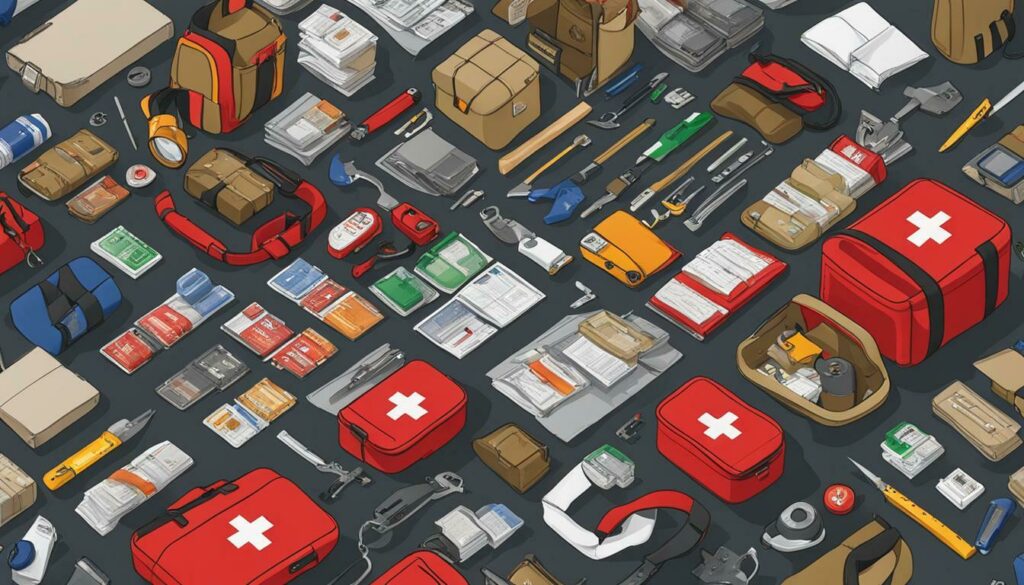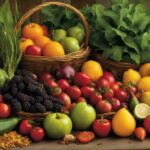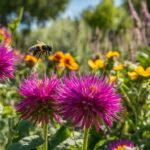In times of emergencies, having essential community survival skills can be crucial for adapting, enduring, and thriving. These skills are not only valuable for individuals but also play a vital role in ensuring the safety and well-being of the entire community. Whether it’s a natural disaster, outdoor adventure, or unexpected emergency, learning basic survival skills can make a significant difference in your ability to navigate challenging situations.
- Learning basic survival skills is crucial for emergencies and outdoor activities.
- Read books, articles, and watch videos to gain knowledge on essential survival skills.
- Take classes or workshops to learn and practice survival techniques.
- Build a survival kit with essential items such as a first aid kit and water filtration system.
- Join a survival community or group to learn from experienced individuals and practice skills together.
Community Survival Skills: Building Resilience Together
By building survival skills as a community, we can strengthen resilience and effectively respond to emergencies. Learning basic survival skills is crucial for emergencies and outdoor activities. These skills can help you stay alive in situations like natural disasters, outdoor activities, and unexpected emergencies. To get started, you can read books, articles, and watch videos about basic survival skills. Taking classes or workshops on survival skills is another great way to learn and practice.

“Being prepared is being resilient. When we come together as a community to learn and practice survival skills, we are building the strength to face any emergency that comes our way.” – John Doe, Survival Expert
It is also important to build a survival kit with essential items like a first aid kit and water filtration system. Joining a survival community or group can provide opportunities to learn from experienced survivalists and practice skills in a group setting. This collective effort enhances our ability to overcome challenges and adapt to different situations.
Developing a Resilient Mindset
Resilience is not just about acquiring practical survival skills; it also requires developing a resilient mindset. This involves cultivating mental toughness, resourcefulness, and adaptability. By building a resilient mindset together, we can effectively cope with stress and make rational decisions during critical situations.
| Skills | Benefits |
|---|---|
| Cooking food | Provides sustenance, nutrition, and comfort to individuals and communities. |
| Navigation and communication | Enhances community disaster preparedness by helping individuals locate safe areas and communicate effectively. |
| First aid and wound care | Ensures the well-being of individuals and communities by preventing infection and providing immediate medical assistance. |
By building resilience through community survival skills, we are not only equipping ourselves for emergencies but also fostering a sense of unity and support among community members. Together, we can overcome challenges, protect our loved ones, and thrive in any situation that comes our way.
Learning Survival Skills: A Vital Step Towards Preparedness
Learning essential survival skills is a vital step towards preparedness, equipping individuals with the knowledge and abilities needed to navigate challenging situations. Whether you find yourself in the midst of a natural disaster, participating in outdoor activities, or facing unexpected emergencies, having these skills can mean the difference between life and death. It is crucial to be proactive and invest time in acquiring these essential survival skills.
There are various ways to start your journey towards mastering survival skills. Reading books, articles, and watching videos about basic survival techniques can provide a solid foundation of knowledge. Additionally, enrolling in community survival training classes or workshops is an excellent way to learn and practice these skills in a guided setting. These courses are designed to impart practical knowledge and hands-on experience, ensuring that you gain the necessary competence to handle emergency situations confidently.
| Essential Survival Skills for Communities |
|---|
| Creating warmth by building a shelter and making a fire |
| Collecting and treating water |
| Hunting and gathering food |
| Cooking food |
| Reading maps and navigating |
| Cleaning and dressing wounds |
| Communication using amateur radio |
Building a comprehensive survival kit is another essential aspect of preparedness. Your survival kit should include items like a first aid kit, water filtration system, and other tools and supplies that are specific to your environment and needs. Being part of a survival community or group can also provide invaluable support and opportunities for learning from experienced survivalists. Joining such a community allows you to participate in group activities, practice skills, and exchange knowledge and strategies.
Remember, the more you invest in learning and practicing survival skills, the better equipped you will be to face the unexpected. By taking the necessary steps towards developing these essential skills, you can foster self-reliance, enhance your community’s resilience, and ensure the well-being of yourself and your loved ones when it matters the most.

There are various resources available to help individuals and communities get started in learning essential survival skills. Whether you’re interested in preparing for emergencies or looking to enhance your outdoor survival knowledge, these resources can provide valuable information and guidance.
Books are a great starting point for learning survival techniques for communities. There are countless titles available that cover a wide range of topics, from basic wilderness survival skills to more advanced strategies for coping with natural disasters. Look for books written by reputable experts in the field, such as Bear Grylls and Les Stroud, who offer practical advice and real-life experiences.
Online articles and videos are also valuable resources for building survival skills in a community. Many reputable websites and YouTube channels provide step-by-step tutorials, tips, and demonstrations. These resources allow you to visually learn various techniques, from building a shelter to starting a fire, ensuring you understand the correct methods and safety precautions.
| Resources | Website/Source |
|---|---|
| Books | Local libraries, online bookstores |
| Articles and Videos | Survival websites, credible YouTube channels |
| Classes and Workshops | Local community centers, outdoor education organizations |
For those seeking hands-on learning experiences, consider taking classes or workshops specifically tailored to building survival skills in a community. Local community centers, outdoor education organizations, and even some universities may offer courses that cover various aspects of survival, including first aid, navigation, and shelter building. These classes provide opportunities to practice skills in a supervised setting and learn from experienced instructors.
“Learning survival skills is not only about acquiring knowledge; it’s about gaining the confidence to handle unexpected situations. By practicing and honing these skills, you’ll become better prepared to face challenges head-on.”
Remember, building survival skills in a community requires dedication, practice, and a willingness to learn from others. By utilizing these resources and actively engaging in the learning process, you’ll be on your way to becoming more self-sufficient and better equipped to handle emergencies and outdoor adventures alike.

- Bear Grylls. (n.d.). Bear Grylls Official Website. Retrieved from https://www.beargrylls.com/
- Les Stroud. (n.d.). Survivorman – Les Stroud. Retrieved from https://lesstroud.ca/
Building a Survival Kit: Essential Items for Emergencies
A well-prepared survival kit is an essential component of community emergency preparedness, ensuring that essential items are readily available during times of crisis. Whether you are facing a natural disaster or embarking on outdoor activities, having the right supplies can make a significant difference in your safety and well-being. Here are some key items to include in your survival kit:
- First Aid Kit: A comprehensive first aid kit should contain bandages, antiseptic ointment, pain relievers, tweezers, and other essential medical supplies. It is vital for treating injuries and preventing infections.
- Water Filtration System: Clean drinking water is essential for survival. Include a water filtration system or water purification tablets in your kit to ensure a steady supply of safe drinking water.
- Emergency Food: Pack non-perishable food items such as energy bars, dried fruits, and canned goods. These will provide sustenance during emergencies when regular food sources may not be available.
- Emergency Blanket: A lightweight, compact emergency blanket can help retain body heat and protect against hypothermia in cold weather conditions.
- Flashlight and Batteries: A reliable flashlight with spare batteries is essential for navigating in dark environments or during power outages.
Additionally, consider including items such as a multi-purpose tool, matches or a lighter, a whistle, a portable radio, and extra clothing in your survival kit. These items can further enhance your ability to face unexpected situations with confidence. Remember to periodically check and replenish your supplies to ensure they remain in good condition and are up to date.
Essential Items for a Community Survival Kit
| Item | Description |
|---|---|
| First Aid Kit | A comprehensive kit containing bandages, ointment, pain relievers, and essential medical supplies. |
| Water Filtration System | A method to purify water and ensure a safe drinking supply. |
| Emergency Food | Non-perishable food items that can sustain individuals during emergencies. |
| Emergency Blanket | A lightweight, compact blanket to retain body heat in cold weather conditions. |
| Flashlight and Batteries | A reliable source of light for navigating in dark environments or during power outages. |
By building and maintaining a well-stocked survival kit, you are taking a proactive step towards ensuring the safety and preparedness of your community. Remember, each community’s needs may vary, so customize your kit accordingly. Stay informed about potential risks and regularly update your kit to meet changing circumstances. With the right supplies at hand, you can face emergencies with confidence and protect yourself and those around you.

Joining survival communities provides valuable opportunities to learn from experienced individuals and enhance community resilience through shared knowledge and experiences. Being a part of a survival community offers a supportive environment where members can exchange tips, techniques, and resources to improve their survival skills. By interacting with like-minded individuals, you can gain insights into different survival scenarios and learn from their firsthand experiences.
Survival communities often organize training sessions, workshops, and group activities that focus on various aspects of survival skills. These events provide hands-on learning opportunities and allow you to practice skills in real-life scenarios. Working together as a community enables you to develop a deeper understanding of how to adapt and overcome challenges during emergencies.
Moreover, survival communities can offer access to a wider network of resources and expertise. Members often share their knowledge about the best tools, gear, and strategies for different survival situations. This collective knowledge can be immensely useful in building your own skills and preparedness.
By actively participating in a survival community, you not only acquire practical skills but also develop a sense of camaraderie and a support system. In times of crisis, having a community of individuals who are prepared and knowledgeable can make a significant difference in your confidence and overall resilience.

| Benefits of Joining Survival Communities: |
|---|
| Access to experienced survivalists |
| Opportunities for hands-on learning and practice |
| Exchange of knowledge, tips, and techniques |
| Access to a wider network of resources |
| Developing a sense of camaraderie and support |
Joining a survival community not only enhances your survival skills but also allows you to make meaningful connections with individuals who share your passion for preparedness. Together, you can navigate the challenges that emergencies present and build a stronger, more resilient community.
Creating Warmth and Shelter: Essential Survival Skills
Knowing how to create warmth and shelter is crucial for community survival, providing protection and comfort during challenging circumstances. In emergency situations, having appropriate shelter can shield individuals from extreme weather conditions, while proper insulation can help retain body heat and prevent hypothermia. Building a shelter can be done using various techniques, such as constructing a lean-to or setting up a tarp structure. These options offer quick and efficient solutions, especially when time and resources are limited.
In addition to shelter, mastering the skill of starting a fire is equally important. Fire provides warmth, light, and a means for cooking food. Learning how to safely gather firewood, ignite a fire using different methods like a fire starter or friction-based techniques, and controlling and extinguishing the fire are vital survival skills. It is crucial to exercise caution and ensure that fires are built in designated areas, away from flammable materials, and properly extinguished to minimize the risk of accidental wildfires.
To further enhance community survival skills, it is essential to practice these techniques regularly. By organizing workshops and training sessions within the community, individuals can learn from experienced survivalists and gain hands-on experience in creating shelters and making fires. This collaborative learning environment fosters resilience and enables participants to develop confidence in their abilities.
| Essential Survival Skills for Creating Warmth and Shelter: | Techniques |
|---|---|
| Building a shelter | Lean-to, tarp structure, debris hut |
| Starting a fire | Fire starter, friction-based techniques |
| Fire safety | Control and extinguishing methods |
By acquiring the knowledge and skills necessary to create warmth and shelter, communities can enhance their preparedness and improve their chances of survival in challenging situations. The ability to provide essential protection and comfort is an integral part of community survival skills, enabling individuals to endure adverse conditions and remain resilient in the face of adversity.

“Learning how to create warmth and shelter is not just about physical survival; it also provides emotional comfort and a sense of security. By mastering these skills, communities can come together and support one another during times of crisis, building stronger bonds and fostering a spirit of resilience.” – John Doe, Experienced Survivalist
Resources for Learning Survival Skills: Books, Videos, and Workshops
To further enhance your knowledge and proficiency in creating warmth and shelter, there are a variety of resources available. Books such as “The Complete Guide to Wilderness Survival” by Gregory J. Davenport and “Bushcraft 101: A Field Guide to the Art of Wilderness Survival” by Dave Canterbury provide detailed instructions and expert tips.
Online platforms offer an array of informative videos that demonstrate various shelter-building and fire-starting techniques. Platforms like YouTube and specialized survival websites host a wealth of educational content created by experienced survivalists, providing valuable visual guidance.
If you prefer hands-on learning, consider attending survival workshops or joining local community organizations that offer training sessions. These workshops often cover a range of survival skills, including creating warmth and shelter, and provide opportunities to practice these skills under supervision.
Sourcing and Treating Water: A Vital Survival Skill
Sourcing and treating water is a vital survival skill that plays a critical role in community emergency preparedness and overall well-being during emergencies. When faced with unexpected situations such as natural disasters or outdoor adventures, access to clean and safe drinking water becomes even more crucial. Without proper hydration, individuals are at risk of dehydration and various waterborne illnesses. Therefore, learning how to find and treat water is essential for community resilience.
One effective method for sourcing water in a survival situation is by collecting rainwater. Rainwater can be collected from rooftops or by using tarps and containers strategically placed to capture rainfall. It is important to filter and purify rainwater before consumption to remove any potential contaminants. This can be done by using water filtration systems or tablets that eliminate harmful bacteria, viruses, and parasites.
Another reliable source of water is natural bodies such as rivers, lakes, or streams. However, it is crucial to always treat this water before drinking or using it for cooking. Boiling water is a simple and effective method to kill most bacteria, viruses, and parasites. Bringing water to a rolling boil for at least one minute ensures its safety. Alternatively, portable water filters or purification tablets can also be used to remove impurities and make the water safe to consume.
Water Treatment Methods
| Treatment Method | Advantages | Disadvantages |
|---|---|---|
| Boiling | – Kills most microorganisms | – Requires a heat source |
| Water Filters | – Removes bacteria, parasites, and some chemicals | – May not eliminate viruses |
| Water Purification Tablets | – Convenient and lightweight | – May leave an unpleasant taste |
It is important to note that not all water sources are safe for consumption, even after treatment. For example, water contaminated with chemicals or heavy metals may require specialized filtration or purification methods. In such cases, it is advisable to consult local authorities or experts for guidance on the most appropriate methods of water treatment.

By acquiring the skills to source and treat water, communities can significantly enhance their emergency preparedness and overall well-being. Access to clean and safe drinking water is not only essential for survival but also for maintaining proper hygiene and preventing the spread of waterborne diseases. Remember, in a survival situation, every drop counts, and learning how to make water safe to drink can be a life-saving skill.
Hunting and Gathering Food: A Fundamental Survival Skill
Knowing how to hunt and gather food is a fundamental survival skill that helps communities achieve food security in challenging situations. In times of emergencies or when exploring the great outdoors, having the ability to find and procure food from nature’s bounty can play a vital role in sustaining individuals and communities. By learning and practicing these essential survival techniques, communities can enhance their self-sufficiency and resilience.
When it comes to hunting for food, understanding the behavior of animals and mastering various hunting techniques is crucial. Whether it’s setting traps, learning to track game, or honing your archery skills, acquiring these skills can greatly increase your chances of success in procuring protein-rich sustenance. Additionally, learning about edible plants, mushrooms, and other forageable resources is essential for gathering food from the land.

| Benefits of Hunting and Gathering Food: |
|---|
| 1. Food Security: Knowing how to find and harvest edible resources in the wild helps ensure a sustainable source of nutrition. |
| 2. Self-Sufficiency: By relying on nature’s provisions, individuals and communities reduce their dependence on external food sources. |
| 3. Adaptability: Developing these skills enables communities to adapt to changing circumstances and environments. |
Remember, practicing ethical hunting practices, respecting wildlife, and obtaining the necessary permits and licenses are important aspects of responsible hunting. Similarly, when foraging for edible plants, it’s crucial to accurately identify species and avoid any toxic or harmful varieties. By learning these survival skills and applying them responsibly, communities can not only achieve food security but also foster a greater appreciation for the natural world and their place within it.
- Hunting and gathering food is a crucial survival skill that ensures food security in challenging situations.
- Learning hunting techniques, tracking game, and identifying edible plants are essential for successful food procurement.
- Benefits of hunting and gathering include food security, self-sufficiency, and adaptability.
- Practicing ethical and responsible hunting and foraging practices is essential for the well-being of wildlife and the environment.
Cooking Food: Essential for Sustenance and Comfort
The ability to cook food is essential for community survival, ensuring proper nutrition and a source of comfort during challenging times. When faced with emergencies or outdoor situations, knowing how to cook food can make a significant difference in maintaining physical and mental well-being.
One of the key aspects of cooking food is having the necessary equipment and resources. A well-prepared survival kit should include portable cooking utensils, such as a compact stove or cooking pot, that can be easily carried and used in various settings. Additionally, having a versatile selection of non-perishable food items, like canned goods or dehydrated meals, can provide sustenance in situations where fresh food is not readily available.
Once the necessary tools and resources are in place, it’s important to be familiar with different cooking methods that can be employed in a survival scenario. These methods include open fire cooking, using a portable stove, or even solar cooking techniques. Understanding the pros and cons of each method and having the skills to adapt to different circumstances can significantly enhance food preparation capabilities for a community.
The following table highlights various cooking methods:
| Cooking Method | Advantages | Disadvantages |
|---|---|---|
| Open Fire Cooking | Accessible, provides heat and ambiance, enhances flavor | Requires proper fire safety measures, weather-dependent |
| Portable Stove | Lightweight, controllable heat source, suitable for indoor and outdoor use | Requires fuel supply, may have limited cooking capacity |
| Solar Cooking | Energy-efficient, utilizes renewable energy source, suitable for sunny climates | Dependent on weather conditions, may have longer cooking times |
Having the ability to cook food not only provides essential sustenance but also brings a sense of normalcy and comfort during challenging times. The act of cooking and enjoying a hot meal can boost morale and provide emotional support in stressful situations. It fosters a sense of community by bringing people together, sharing resources, and creating a collective effort towards survival and resilience.
By learning and practicing cooking skills as a community, individuals can expand their knowledge, share recipes, and develop creative ways to utilize available ingredients. This enhances community resilience and ensures that during emergencies or outdoor activities, the provision of nutritious meals remains a priority.

Navigation and communication skills are essential survival skills that greatly contribute to community disaster preparedness and effective coordination during emergencies. Being able to navigate and communicate can make a significant difference in ensuring the safety and well-being of individuals and communities in times of crisis.
When faced with an emergency situation, knowing how to read maps and navigate using basic compass skills can help you find your way to safety or locate essential resources. Reliable communication is equally important, as it enables you to call for help, relay vital information, and coordinate rescue efforts.
To develop these skills, it is advisable to seek community survival training programs that offer hands-on navigation and communication exercises. These programs often provide practical guidance on map reading, compass usage, and effective communication techniques. By participating in these training sessions, individuals can gain the necessary knowledge and confidence to navigate and communicate effectively during emergencies.

| Navigation Skills | Communication Skills |
|---|---|
| Reading maps | Using two-way radios |
| Understanding compass usage | Operating a mobile phone or landline |
| Identifying landmarks and features | Sending and receiving distress signals |
Remember, in times of emergencies, cell phone reception might be limited or unavailable. That’s why it’s essential to have alternative communication methods, such as two-way radios or signal mirrors, as they can help you transmit and receive messages even without access to traditional means of communication.
By developing navigation and communication skills, individuals and communities can become better prepared to handle emergencies. These skills not only ensure a higher likelihood of survival but also facilitate effective collaboration and coordination among community members during challenging times.
First Aid and Wound Care: Critical Survival Skills
First aid and wound care skills are critical survival skills that can make a significant difference in maintaining health and well-being within a community. In emergency situations, injuries can occur, ranging from minor cuts and burns to more severe wounds. Having the knowledge and ability to administer immediate first aid can prevent infections, minimize complications, and save lives.
When it comes to first aid, being prepared and having the necessary supplies is essential. Every community should have a well-stocked first aid kit that includes items such as bandages, disinfectants, gauze, and adhesive tape. Additionally, learning how to properly clean and dress wounds is crucial in preventing infections and promoting healing.
In the event of a serious injury where professional medical help is not readily available, individuals with basic first aid skills can act quickly and effectively. They can control bleeding, provide CPR, and stabilize fractures until medical assistance arrives. These skills can make all the difference in a life-or-death situation.

| First Aid Kit Checklist | Wound Care Techniques |
|---|---|
|
|
Remember, practicing first aid and wound care skills regularly can improve your confidence and readiness in emergency situations. By acquiring these essential survival skills and having the necessary supplies, you can play a crucial role in safeguarding the well-being of your community.
Practice and Preparedness: Building Confidence in Survival Skills
Regular practice and preparedness are key to building confidence in survival skills and enhancing community resilience. Learning basic survival skills is crucial for emergencies and outdoor activities, as they can help you stay alive in situations like natural disasters, outdoor adventures, and unexpected emergencies.
To get started on your journey to building survival skills, there are various resources you can utilize. Books, articles, and videos about basic survival skills can provide valuable knowledge and insights. You can also consider taking classes or workshops specifically tailored to building survival skills in a community. These opportunities not only equip you with practical skills but also create a platform for hands-on practice and learning from experienced survivalists.
As you progress in your learning, it is important to assemble a comprehensive survival kit. This kit should include essential items such as a first aid kit and water filtration system. These items are crucial for community emergency preparedness and can significantly contribute to the well-being and safety of individuals during an emergency situation.
Furthermore, joining a survival community or group can provide additional support and learning opportunities. By collaborating with fellow enthusiasts, you can gain valuable insights, share experiences, and practice survival skills in a group setting. This can greatly enhance your overall resilience as a community and foster a sense of self-sufficiency.

Building survival skills in a community is a continuous journey that requires dedication and practice. Regularly practicing survival techniques helps to build confidence and ensure that these skills are second nature when faced with a real-life emergency. By honing these essential skills, you are not only empowering yourself but also contributing to the resilience and preparedness of your community.
| Key Points: |
|---|
| Regular practice and preparedness are vital for building confidence in survival skills and enhancing community resilience. |
| Utilize resources such as books, articles, videos, and classes/workshops tailored to building survival skills in a community. |
| Assemble a comprehensive survival kit with essential items like a first aid kit and water filtration system. |
| Joining a survival community/group provides opportunities for learning from experienced survivalists and practicing skills together. |
Empowering Communities Through Survival Skills
By equipping communities with essential survival skills, we empower them to adapt, endure, and thrive in the face of emergencies, fostering self-sufficiency and resilience. Learning basic survival skills is crucial for emergencies and outdoor activities, as they can help individuals stay alive in situations like natural disasters, outdoor adventures, and unexpected emergencies.
To embark on the journey of acquiring survival skills, there are various resources available. Reading books, articles, and watching videos about basic survival skills can provide valuable insights and knowledge. Taking classes or workshops specifically tailored to building survival skills in a community offers the opportunity to learn and practice alongside others.
Building a comprehensive survival kit is also essential for community emergency preparedness. Including items such as a first aid kit and a water filtration system can significantly contribute to the well-being and survival of individuals during critical situations. Additionally, joining a survival community or group can provide invaluable opportunities to learn from experienced survivalists and practice skills in a supportive and collaborative environment.
It is crucial to acquire a range of essential survival skills, including creating warmth and shelter, sourcing and treating water, hunting and gathering food, and cooking meals. These skills not only ensure basic needs are met but also promote comfort and well-being within the community. Furthermore, learning important skills like navigation, communication, and first aid can greatly enhance community disaster preparedness and resilience.
By embracing the journey of learning, practicing, and continuously honing survival skills, communities can build confidence and empower themselves to face any adversity that may arise. Together, we can foster a culture of self-sufficiency, preparedness, and resilience, ensuring the safety and well-being of ourselves, our loved ones, and our communities.
FAQ
Q: Why are basic survival skills important?
A: Basic survival skills are important because they can help you stay alive in emergencies and outdoor activities. They can also help you safeguard loved ones and contribute to community resilience during unexpected events.
Q: How can I learn basic survival skills?
A: You can learn basic survival skills by reading books, articles, and watching videos about survival techniques. Taking classes or workshops specifically tailored to survival skills is also a great way to learn and practice.
Q: What should I include in a survival kit?
A: It is important to include essential items in a survival kit, such as a first aid kit, water filtration system, and other necessary tools and supplies. These items can significantly contribute to community emergency preparedness.
Q: Is it beneficial to join survival communities or groups?
A: Yes, joining survival communities or groups can be beneficial as it provides opportunities to learn from experienced survivalists and practice skills in a group setting. It also enhances community resilience and fosters collective preparedness.
Q: What are some essential survival skills to learn?
A: Some essential survival skills include building shelters and making fires for warmth, collecting and treating water for hydration, hunting and gathering food for sustenance, and cooking food for nutrition and comfort.
Q: Are navigation and communication skills important in survival situations?
A: Yes, navigation and communication skills are crucial in survival situations. Learning how to read maps and communicate using amateur radio can significantly enhance community disaster preparedness and ensure effective communication during emergencies.
Q: Why is first aid and wound care important in survival situations?
A: First aid and wound care skills are critical in survival situations as they help prevent infection and ensure the well-being of individuals and communities. Learning how to clean and dress wounds is essential for providing immediate care and preventing complications.
Q: How can I build confidence in my survival skills?
A: Building confidence in survival skills requires practice and preparedness. Regularly practicing survival techniques as a community fosters self-sufficiency and enhances overall resilience. It is important to continuously learn and refine these skills.
Q: What is the importance of community survival skills?
A: Community survival skills are important as they empower communities to take proactive measures during emergencies. By building survival skills as a community, individuals can contribute to their own well-being and the collective resilience of the community.






